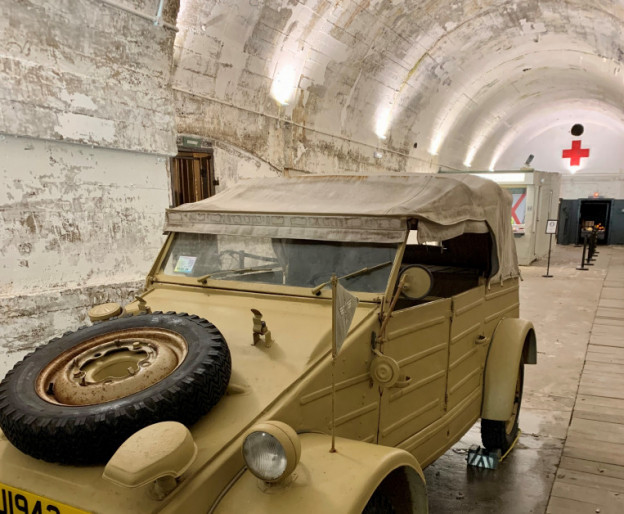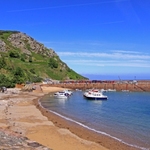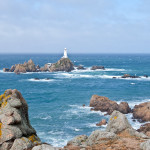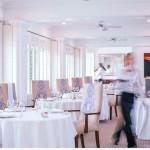Michael Edwards digs into Jersey’s Second World War History in the Jersey War Tunnels
When Jersey was liberated from Nazi occupation in 1945 the Jersey people’s initial reaction was to rid themselves of anything swastika emblazoned. Nazi armaments and vehicles were dumped in the tunnels of the German military underground hospital, Ho8.
Over time the mood changed. Jersey knew that it should remember. The sacrifices, the suffering, the hunger and the deaths should not be forgotten. Lessons would be learnt for the future.
Four miles from St Helier, on bus routes, with a large car park and visitor centre, sits the entrance to the Jersey War Tunnels. Over 1,000 metres of tunnels tell the story of a never completed military hospital and Jersey’s war.
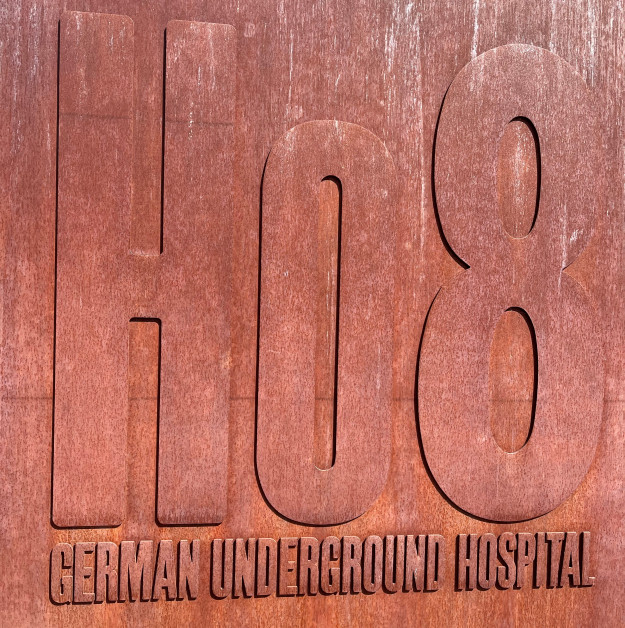
After the fall of France, Sir Winston Churchill announced that the Channel Islands would not be defended. The Admiralty had decided that the islands were not of strategic significance. Exhibits record how islanders were split on whether to stay or go. Although 25,484 Jersey folk opted to flee to England, others believed Jersey was safer. How long would it be before England suffered blitzkrieg’s flames?
One of the strengths of the Jersey War Tunnels is that the exhibits also present the occupation from the German point of view too. For many German troops being on Jersey seemed like a holiday in a land of milk and honey. Some thought that they had already reached the Isle of Wight.
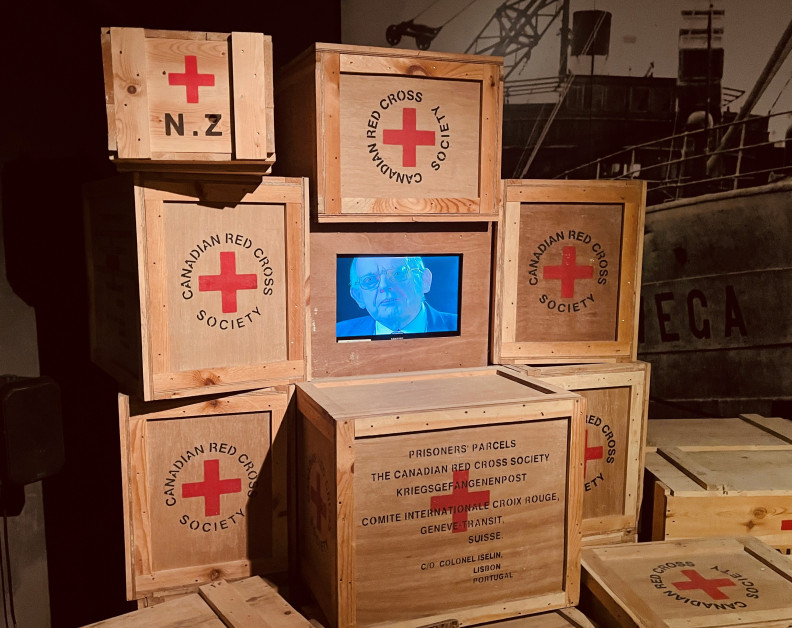
The invasion of England never came and Hitler decreed that Jersey should be fortified to become part of impregnable Atlantic defences. Work began on a hospital, built 33.5 metres below the surface, with capacity for 500 wounded German servicemen.
Five thousand slave labourers were imported from Europe and North Africa to dig out the tunnels. Seven days a week they worked from 7 am to 7pm. The Germans ranked the nationalities, giving the Russians the least food. An unfinished portion of the tunnel serves as a memorial to slaves who lost their lives in horrendous conditions.
Germany tightened its grip on Jersey. The number of occupying soldiers increased, nicknamed greenflies by the locals because of their green uniforms. Clocks went forward an hour to Berlin time. Vehicles drove on the right-hand side of the road and German was taught in schools.
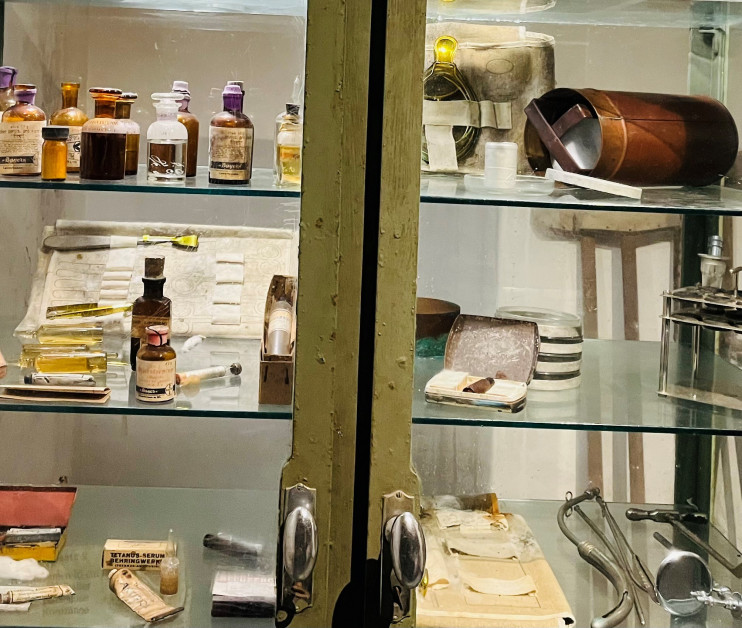
Resistance was impossible. On an island of just five miles by nine miles there was nowhere to hide. Nor did the Jersey people have any arms. An occupation ratio of one German soldier to every four Jersey people was suffocating.
Even possessing a wireless, to hear war news from England, became an offence.
The population splintered. Some seemed to have more chocolate than others. Perhaps from collaborating. Whilst women who fraternised with the German soldiers were labelled Jerry Bags.
After D-Day and the Allied invasion of Normandy, the locals hoped for liberation. But the Admiralty stood by their view that the Channel Islands were of no strategic importance. Normandy was liberated. Paris fell. The Battle of the Bulge was won. And still there was no liberation.
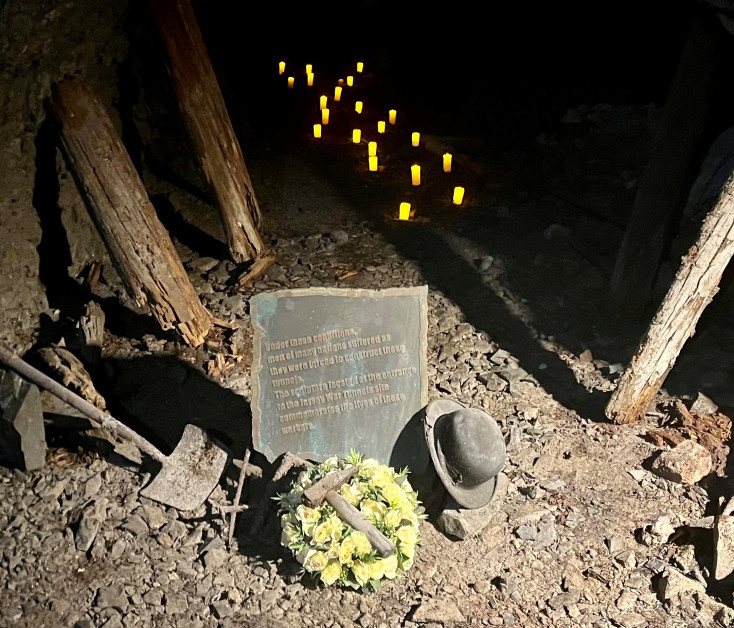
Both islanders and Germans starved. On hearing that his parents had died during an air raid on Berlin, Fritz a teenage German conscript, put a grenade in his mouth and pulled the pin. Islanders continued to try to escape from Jersey’s bays and coves. 19 were recaptured, 19 drowned and one was shot but over a hundred were successful.
Although the Allies were reluctant to provide any assistance that would prolong the German occupation, the exhibition celebrates the arrival on 30th December 1944 of the Red Cross ship, the SS Vega, packed with food parcels. Much of Germany fell and still the Allies would not risk lives on an invasion of Jersey.
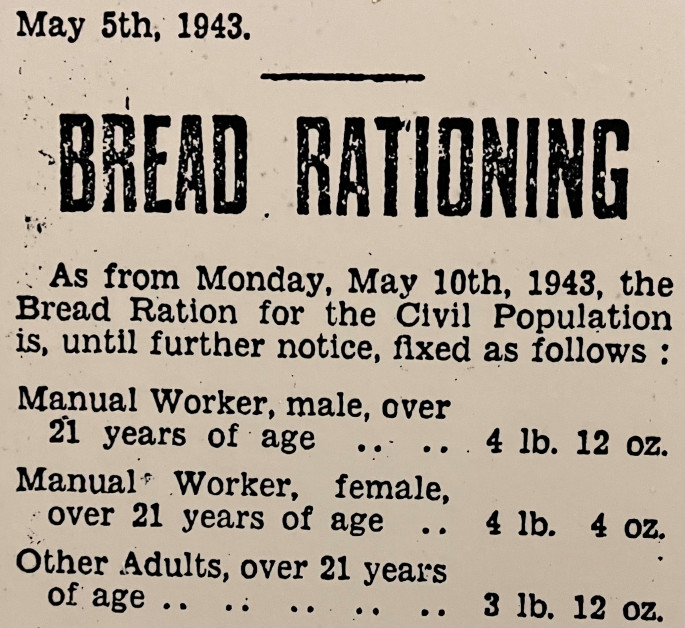
Finally, the Jersey War Tunnels’ soundtrack transitions from explosions and the whine of diving Messerschmitts to God Save the King and Land of Hope and Glory. Then, at last, the day after Germany’s Surrender, Allied Troops Arrived On 9th May 1945.
Tell Me More About The Jersey War Tunnels
Jersey War Tunnels, Les Charrieres Malorey,
Jersey, JE3 1FU
T: +44 1534 860808
Adult tickets £17, children 5 – 15 free, under 5s are free.

